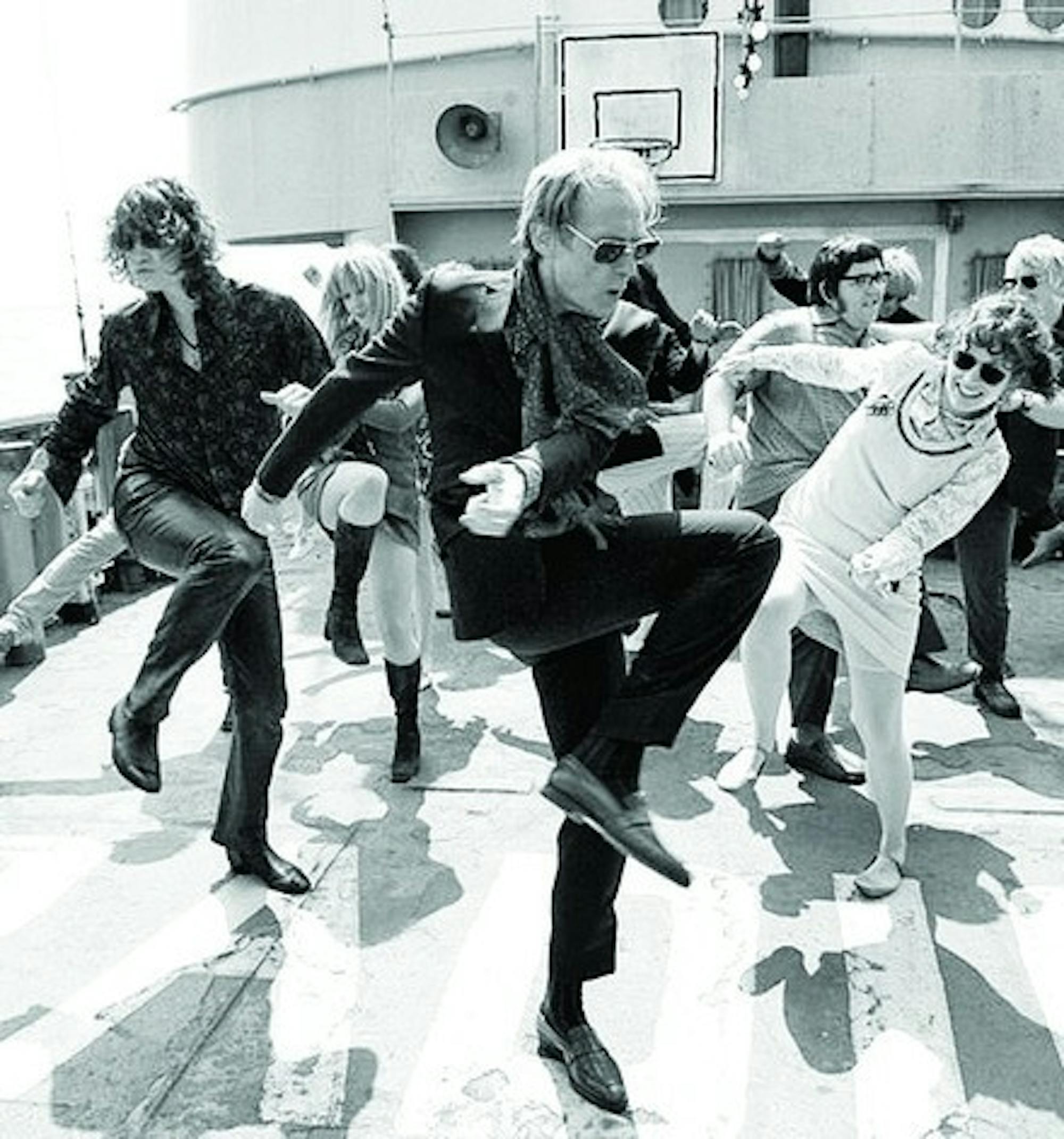The speaker-busting dance montage that accompanies the opening credits of "Pirate Radio" (2009) is a rousing tribute to the joy and liberation that rock and roll music brought to a generation in the 1960s.
That "Pirate Radio" can entertain an audience for a full two hours on the sheer force of that jubilance is a testament to the strength of the cast and the staying power of rock and roll.
In this retooled version of the British film "The Boat That Rocked" (2009), a group of bohemian DJs pump round-the-clock rock music from the basement of a rusty tanker just off the northern shore of Great Britain in 1966. Quentin (Bill Nighy) is the impeccably dressed head of the radio station whose godson Carl (Tom Sturridge) comes to live on the boat after his expulsion from school.
Why Carl's mother would send her son to live on a boat full of music, sex, heavy drinking and all manner of anti-establishmentarianism is a mystery only resolved later, but, frankly, it doesn't really matter.
As the audience gets wrapped up in the boat's brand of gleeful anarchism, the film's flaws dissolve from memory.
There is The Count (Philip Seymour Hoffman, the lone Yankee in this British all-star cast), whose combination of talent, passion for music, and American identity makes him an alluring leader. His second-in-command is Dave (Nick Frost), an overweight Casanova with bad sideburns.
The nervous but sincere Simon (Chris O'Dowd) becomes Carl's best friend on the boat.
Finally there's Bob (Ralph Brown), a burned-out hippie who rarely leaves his room except to do the early-morning broadcast.
A hilarious cast of oddballs a DJ who never speaks, a lesbian cook round out the boat's crew.
The DJs' rapport is full of good-natured mocking, and it's almost as if you're hanging out with a much cooler version of your friends.
The best part about "Pirate Radio" is its unabashed joviality, aided by a 1960s rock nostalgia soundtrack.
The film makes no pretense of being a serious character study or a plot-driven thriller.
It seems as though the boat is a world where things happen without causes or consequences and they like it that way.
The unreality of the film world takes away from the emotional impact of some scenes, keeping the mood light and hedonistic.
Every once in a while, however, writer-director Richard Curtis, who wrote and directed the similarly-overstuffed ensemble piece "Love Actually " (2003), tries to make his characters into heroes.
This leads to some awkward philosophizing, especially on the part of The Count, who has late-night conversation with Carl full of "best days of our lives" nostalgia.
Fortunately, these scenes are only a brief and endurable glitch in the otherwise easygoing comedy.




![HONEYJOON_[Ines Gowland]_4.PNG](https://snworksceo.imgix.net/drt/7af2efc8-1bd1-4001-b754-e2718ce663b8.sized-1000x1000.PNG?w=1500&ar=16%3A9&fit=crop&crop=faces&facepad=3&auto=format)